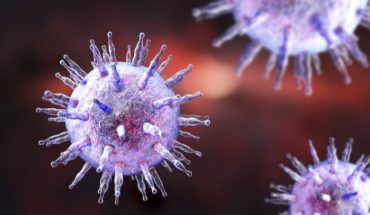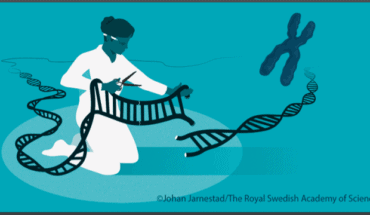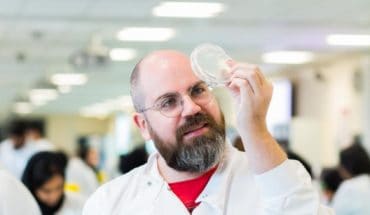Genetic manipulation that more than doubles lifespan also leads to better offspring – according to new collaborative research from the University of East Anglia and Uppsala University.
Researchers studied a gene, known as DAF-2, which is associated with ageing in roundworms (Caenorhabditis elegans).
They found that by reducing this gene’s expression, they could not only increase the worm’s lifespan – but also improve the fitness of its offspring.
It is hoped that the findings could one day help us stay younger and healthier for longer.
Lead researcher Dr Alexei Maklakov, from UEA’s School of Biological Sciences, said: “Understanding how and why we age is fundamental to improving quality of life in an increasingly long-lived society.
“It is often thought that we age because of a slow accumulation of unrepaired cellular damage in our bodies, and that ageing is the result of energy trade-offs between growth, reproduction and survival.
“But we now know that switching off the function of certain genes in adulthood can increase longevity without a reproduction cost.
“An emerging new theory is that the genes that age us are programmed to make us grow and reproduce in early life, but when their function “runs-on” unabated in later life it starts causing problems.
“If this is true, then we should be able to stay younger for longer by reducing high levels of gene signalling, or ‘shutting down’ these genes in later life.”
“An emerging new theory is that the genes that age us are programmed to make us grow and reproduce in early life, but when their function “runs-on” unabated in later life it starts causing problems.
“If this is true, then we should be able to stay younger for longer by reducing high levels of gene signalling, or ‘shutting down’ these genes in later life.”
DAF-2 is the insulin receptor gene that plays a key role in the insulin/insulin-like growth factor 1 (IFG-1) signalling pathway in roundworms.
The IGF-1 signalling pathway controls an organism’s growth, reproduction and longevity, and reduction in IGF-1 signalling increases lifespan in many animals. Because DAF-2 function is important for development and early-life reproduction, the team allowed the worms to develop and reach reproductive maturity before “knocking-down” the gene.
“As expected, we found that the worms lived more than two times longer when IGF-1 signalling that ages them was reduced. Remarkably, we also found that their offspring were fitter and produced more offspring themselves.
“We are really killing two birds with one stone, because we are improving the health and longevity of the parents and the fitness of their offspring.
“This really challenges the classic idea that ageing is invariably linked to energy allocation between survival and reproduction.
“Our findings support the emerging view that suboptimal gene expression in adulthood lies at the heart of ageing. Essentially, our results show that natural selection optimises gene expression in early-life but is not sufficiently strong to optimise gene expression in late-life.
“Ageing can result from accumulation of unrepaired damage with age. However, it can also result simply from suboptimal regulation of gene expression in late-life.
“Understanding the importance of these two processes is important both for our understanding of the evolution of ageing, and for the applied programs aimed at lifespan extension. We want to establish which of the two processes is more prevalent across the tree of life.”
‘Experimentally reduced insulin/IGF-1 signalling in adulthood extends lifespan of parents and improves Darwinian fitness of their offspring’ is published in the journal Evolution Letters on Monday, March 4, 2019.
The research was funded by the European Research Council.
- New lipid-based pathway discovered as key to memory formation - 25th June 2025
- Crucial link could explain how Alzheimer’s takes hold - 25th June 2025
- Understanding Your Mind Can Improve Daily Life - 25th June 2025






